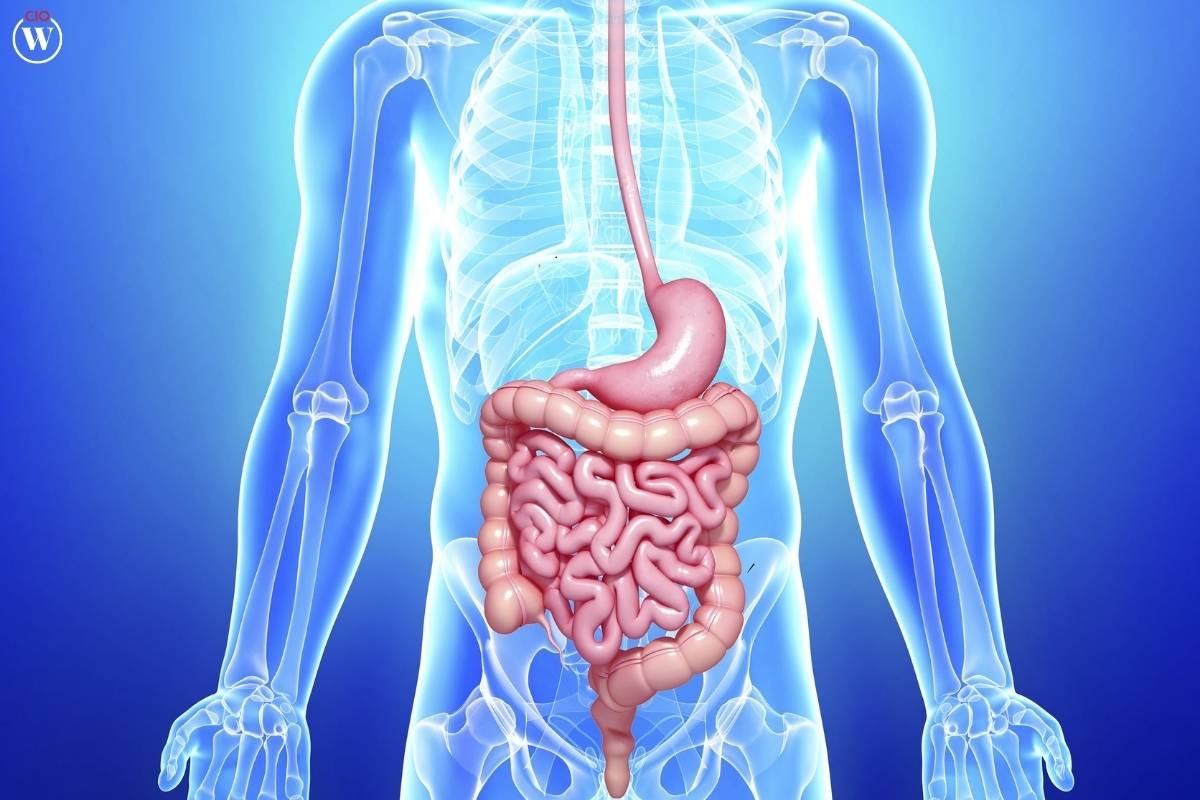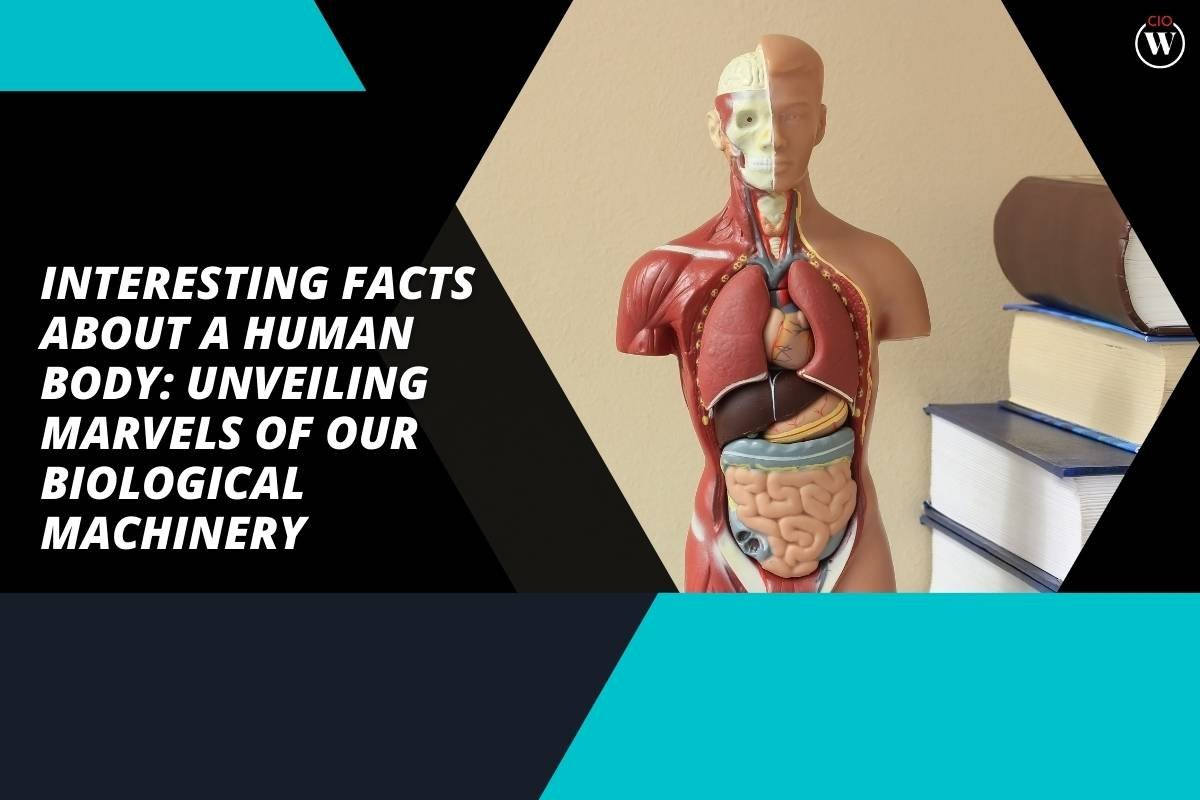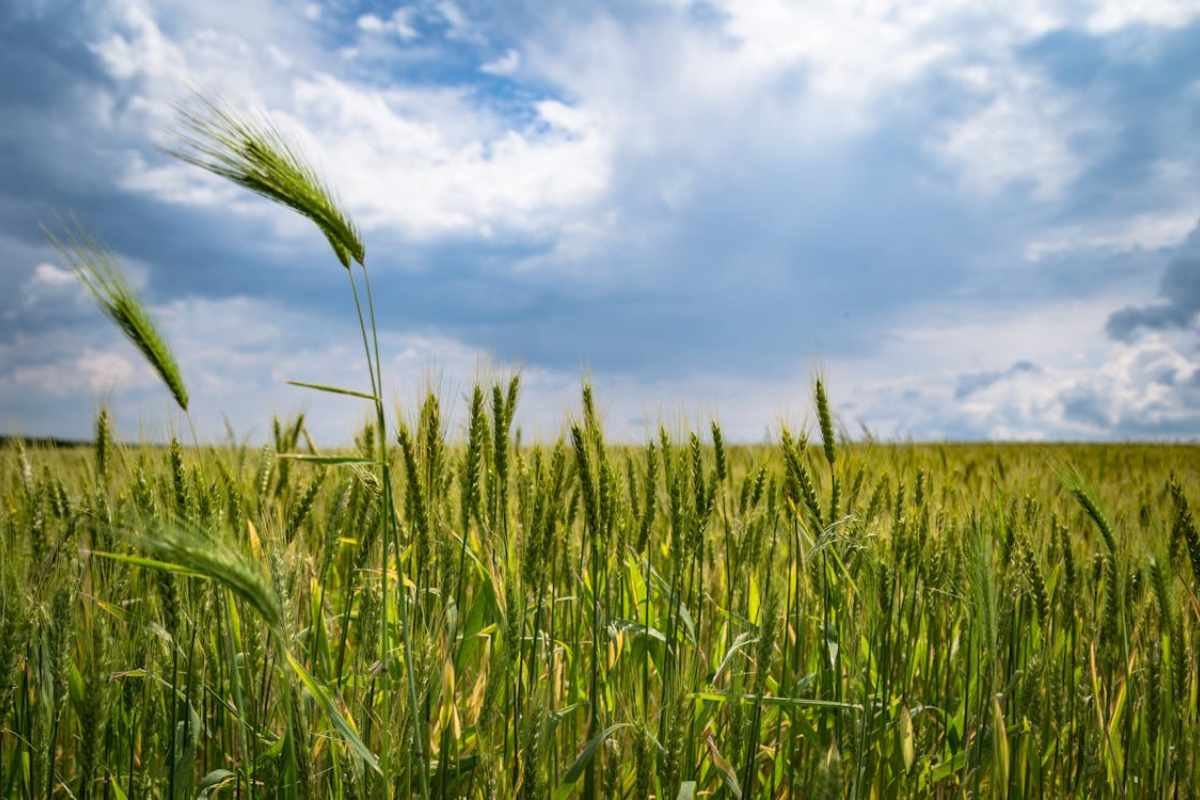The human body is amazing, with many intricate processes and abilities that we might not notice every day. From how our organs work together to tiny actions inside our cells, learning about these abilities can help us understand human biology better.
Let’s explore some interesting facts about the human body that show just how incredible it is. These facts about the human body will highlight its amazing abilities and unique features, giving us a better appreciation of how our bodies function.
Here are 10 Interesting Facts About the Human Body
1. The Power of Muscles
Our body’s muscles are not only responsible for movement but also exhibit incredible strength. One of the fascinating facts about the human body is that the strongest muscle in proportion to its size is the masseter, located in the jaw. Pound for pound, it exerts more force than any other muscle in the body, enabling us to chew food with remarkable efficiency.
2. The Largest Organ: Skin

Contrary to common perception, the skin is not merely a superficial covering but the body’s largest organ, spanning approximately 22 square feet (2 square meters) and weighing around 8 pounds (3.6 kilograms). Beyond its role as a protective barrier against pathogens and UV radiation, the skin regulates body temperature and enables sensory perception of touch, pressure, and temperature changes. Its three layers—epidermis, dermis, and hypodermis—work in tandem to maintain health and functionality, highlighting the skin’s pivotal role in maintaining homeostasis and facilitating interactions with the external environment.
3. The Astonishing Brain
The brain is a marvel of complexity, one of the fascinating facts about the human body, housing approximately 86 billion neurons that transmit electrical signals and govern every aspect of our thoughts, emotions, and bodily functions. Despite weighing only about 3 pounds (1.4 kilograms), the brain consumes about 20% of the body’s oxygen and glucose, highlighting its high metabolic demands for optimal functioning.
4. Bones: The Body’s Scaffold
Bones, vital for structure and organ protection, are living tissues that constantly renew through remodeling. Approximately every decade, the entire skeletal framework undergoes turnover, where old bone tissue is replaced by new. This process, orchestrated by osteoclasts breaking down old bone and osteoblasts forming new bone, ensures bones remain strong and adaptable to the body’s changing needs. Factors like physical activity and nutrient intake influence remodeling rates, with weight-bearing exercises stimulating bone density and strength. Understanding bone remodeling underscores its crucial role in maintaining skeletal health and resilience throughout life, promoting overall well-being and longevity.
5. The Remarkable Heart
The heart is an extraordinary organ that beats around 100,000 times a day, pumping approximately 2,000 gallons (7,570 liters) of blood through the circulatory system daily. Facts about the human body highlight its endurance and vital role in sustaining life, as it can pump enough blood over a lifetime to fill three supertankers.
6. Digestive Marvels

The digestive system processes food, extracts nutrients, and eliminates waste, all within a highly efficient network of organs. In facts about the human body, the small intestine, despite its name, is actually the longest part of the digestive tract, averaging about 20 feet (6 meters) in length. It absorbs nutrients from food into the bloodstream through millions of tiny finger-like projections called villi.
7. Sensory Wonders
Our sensory organs provide us with invaluable information about the world around us. These facts about the human body show that the eye, for instance, can distinguish approximately 10 million different colors and is capable of processing visual information at lightning speed. Meanwhile, the ear’s cochlea contains over 15,000 tiny hair cells responsible for converting sound waves into electrical signals our brain can interpret.
8. Resilient Immune System
The immune system defends the body against pathogens and foreign invaders, employing a vast network of cells, tissues, and organs. Interestingly, these are essential facts about the human body: our bodies produce about 100 billion white blood cells daily to combat infections and maintain overall health, showcasing the immune system’s robustness and adaptability.
9. Hormonal Balance

Hormones serve as vital chemical messengers in the human body, regulating metabolism, growth, mood, and reproduction. The pituitary gland, located at the base of the brain, is renowned as the body’s master gland for its role in secreting hormones that control other glands in the endocrine system. These hormones include growth hormone, thyroid-stimulating hormone, and reproductive hormones like luteinizing hormone. By maintaining equilibrium and coordinating essential processes throughout the body, the pituitary gland ensures optimal health and functionality, underscoring its critical importance in human physiology, overall well-being, and facts about the human body.
10. Genetic Blueprint
Each cell in the human body contains about 23,000 genes, forming our genetic blueprint or genome. If unraveled, this DNA would stretch approximately 34 billion miles—enough to travel from Earth to Pluto and back multiple times. This vast genetic information orchestrates life’s processes, shaping our traits and health. Scientists continually uncover its complexities, revealing how genes influence everything from physical features to disease risks. Understanding our genome’s enormity sparks ongoing fascination and underscores its pivotal role in human biology. Facts about the human body such as these highlight the incredible scale and intricacy of our biological makeup.
Conclusion
The human body is a testament to nature’s ingenuity, comprising a symphony of interconnected systems and processes that sustain life and enable our existence. Exploring these intriguing facts about the human body, such as its ability to heal wounds, digest food, and regulate temperature, not only deepens our understanding of its complexities but also underscores the resilience and adaptability inherent in our biological makeup. As research continues to unravel more mysteries of human biology, we continue to marvel at the wonders of our own existence, appreciating the intricate mechanisms that define us as human beings. Discovering fascinating facts about the human body reveals its incredible intricacies and highlights the marvels of our biological makeup.









